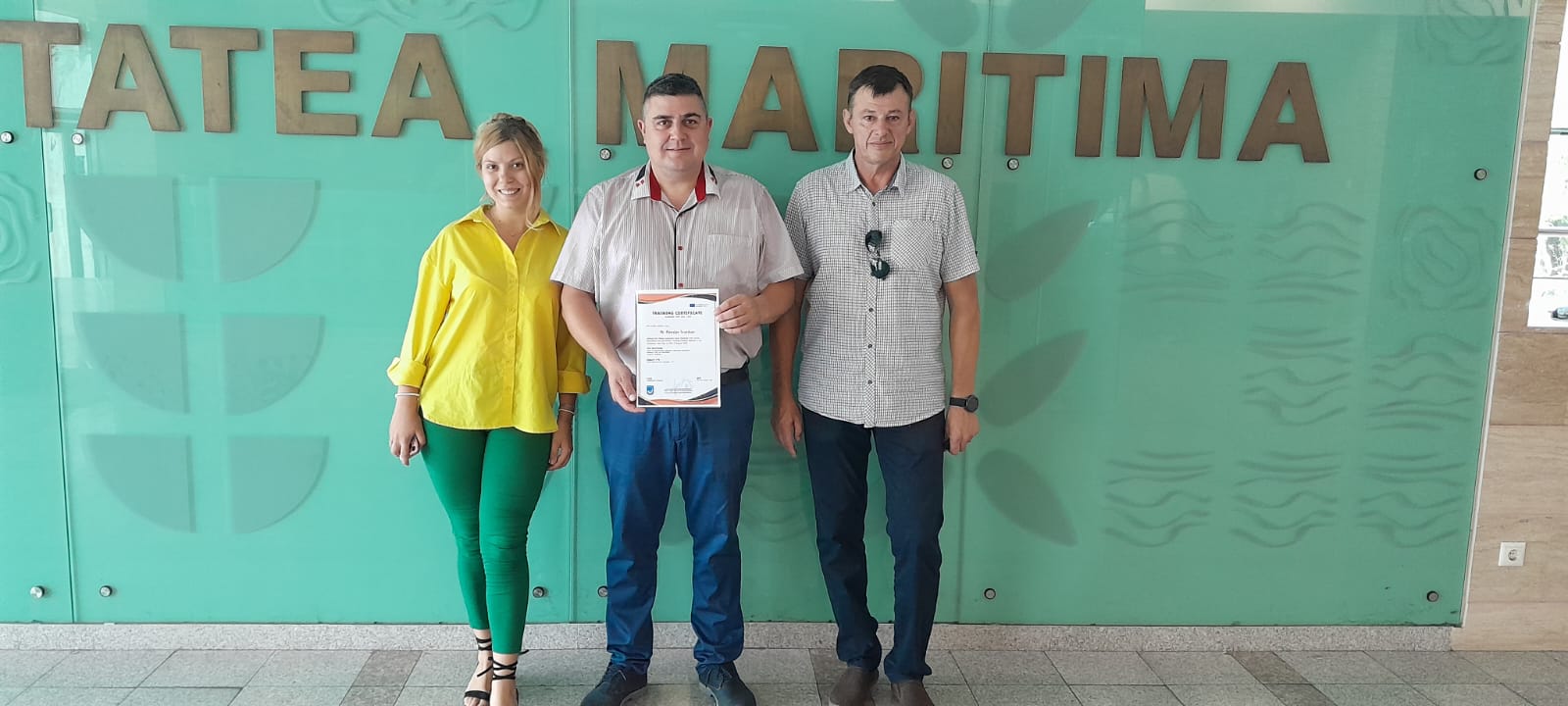Erasmus+ Department of Constanta Maritime University opened the door for Capt. Miroslav Tsvetkov, Director of the Scientific Section and Professor of Navigation Faculty at Nikola Vaptsarov Naval Academy, Bulgaria, on a Teaching Staff Training Mobility program.
He was interested on DP, ECDIS, Radar simulators from UMC headquarters and the fire fighting range in the Nautical Base premisses. Together with the CMU academic staff, Mr. Tsvetkov set plans about future mobilities between the two partner universities.
In the end of his visit, the professor also had an interview, you can find down below:
Interview Prof. Ph. D. Eng. Capt. Miroslav Tsvetkov, Head of Scientific Department, Nikola Vaptsarov Naval Academy, Varna, Bulgaria
CMU: Hello sir, what professional experience do you have in the maritime field?
MT: I started my secondary education at the Technical School of River Shipbuilding and Navigation in Ruse (Bulgaria), speciality “Inland Navigation”. I completed my secondary education to Nikola Vaptsarov Naval Academy (NVNA) in Varna, Bulgaria. During my training I have sailed on river and sea ships as well as on sail-boats as part of the international Cutty Sark Tall Ships Race. After a few years in the Navy I returned to the NVNA as a PhD student in 2005, when my journey as a teacher and researcher in the maritime domain began. During the time I have a lot of experience participating in European and International projects related to marine environment protection and other educational projects related to the maritime industry.
CMU: Why did you choose to visit Constanta Maritime University?
For several years I have also been responsible for the NVNA’s scientific projects. Moreover, our two universities have very good traditions in both educational and scientific projects, which is the reason why I am visiting Constanta Maritime University now to discuss new opportunities for collaboration and partnership and to continue to grow closer in our cooperation and further the extend of our bilateral initiatives.
I visited Romania many times and I have great impressions of your country- the well-developed infrastructure, the historical and cultural heritage and the hospitality of people. It’s always a pleasure for me to visit your country.
CMU: Which do you consider to be the biggest challenges of the maritime field today?
One of the challenges is keeping the marine environment clean. Europe is investing heavily in research projects, education and training, including prevention of marine pollution, plastic waste, using of new energy sources such as hydrogen.
Next, I would put the challenge of shipping transformation to autonomous shipping and applications of AI in the maritime domain.
CMU: What new approach have you recently implemented in your university, regarding the recruitment of future students?
MT: Everyone knows that the maritime profession is not an easy one. To practice it, seafarers are subjected to many hardships, especially on a personal level.
We try to use all available tools such as laboratories, models, simulators, real ships, real machines and mechanisms, training base in the process of training our students. As part of their training, they also obtain some of the basic certifications they need to practice the profession they are preparing for.
CMU: How do you see the new generations of students? How did they differ from your generation?
MT: Naturally, each generation has its own peculiarities, which mostly depend on the environment in which the given generation develops.
We aim to explore and exploit the positive aspects of the new generations, such as actively using their skills in the field of maritime digitalization. The coming generation (the next step) will work with ease with the algorithms of artificial intelligence, computer vision, and sophisticated robots (which autonomous ships will be in practice) because for them this will not be a novelty, but the real environment in which they have grown up.
CMU: What opportunities does a future student have if he chooses the maritime field, given the current economic, political, and social situation?
MT: The maritime profession is one of the oldest, and without sea transport, there is no way to exchange goods on the world market. With the developing technology, the job of the sailors will be easier. The maritime profession cannot disappear regardless of social and political factors.
CMU: Thank You, Sir!
